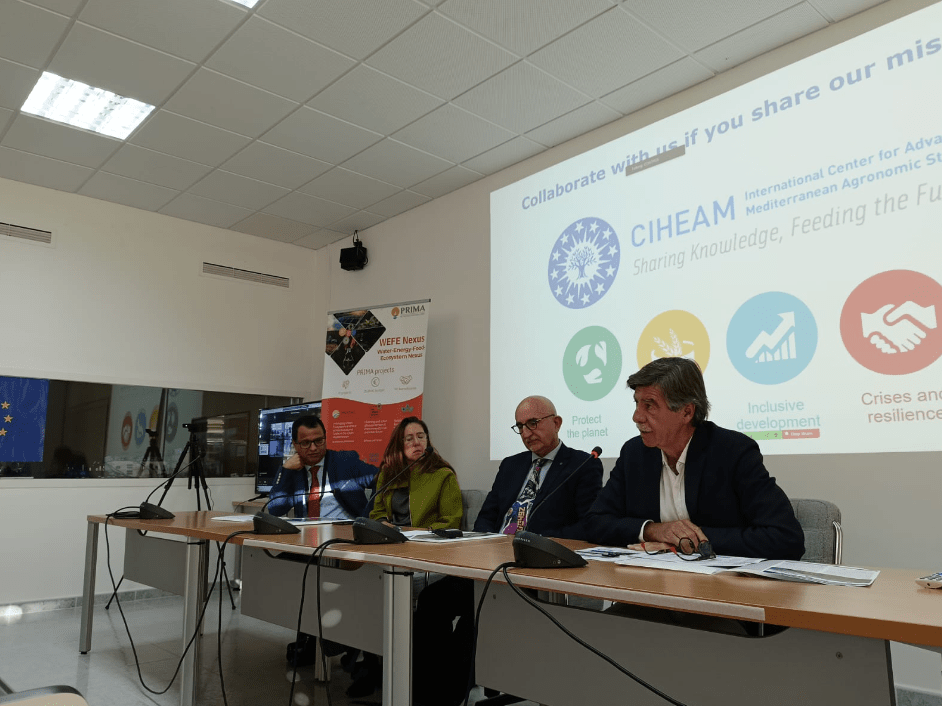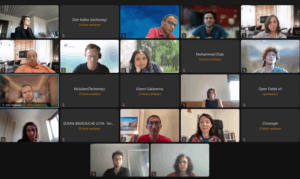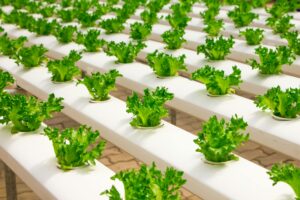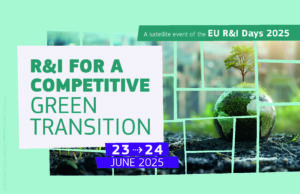In the Mediterranean region, the Water-Food Nexus is of paramount importance, as the agricultural sector alone accounts for approximately 70% of all global freshwater withdrawals.
The pivotal role of irrigation in ensuring food security intersects with the promising potential of renewable energy sources; however, the shift toward modern irrigation systems has heightened energy demands, impacting rural development and sustainability, while environmental threats such as nitrate pollution and climate change add complexity to the challenges faced.
In light of these challenges, innovative solutions in technology and policy are imperative to secure future water, energy, and food security while safeguarding the environment.
Today, 50 experts and practitioners are convening for an advanced course on the WEFE nexus to explore complex trade-offs in the changing environment, analyze energy implications of water use shifts, develop resilient policies aligned with Sustainable Development Goals, apply sustainability assessments, and enhance skills through interactive sessions.
Held in Zaragoza, Spain, from November 6 to November 11, the advanced course aims at unravelling the intricate interplay between Water, Energy, Food, and Ecosystems (WEFE) in Mediterranean irrigated agriculture.
Jointly organized by the International Centre for Advanced Mediterranean Agronomic Studies (CIHEAM), CIHEAM Zaragoza, the PRIMA Foundation, and the International Center for Agricultural Research in the Dry Areas (ICARDA), this week-long course will blend in-person and live online sessions transmitted from the Mediterranean Agronomic Institute of Zaragoza. It will feature distinguished lecturers from various research centers, universities, associations, NGOs, and consultancy firms across different countries.
Moreover, participants will be encouraged to share brief reports detailing the WEFE nexus in their specific regions or countries, fostering a collaborative learning environment and facilitating knowledge dissemination among peers and lecturers.
CIHEAM Zaragoza’s Director Raul Compés welcomed all the participants, highlighting that “It is essential for us to foster collaboration between key actors, aiming to narrow the research gap & establish a platform for shared knowledge, synergy, & facilitated networking opportunities.”
During the opening session, Octavi Quintana, PRIMA’s director, emphasized the pivotal work accomplished by PRIMA in the field of WEFE Nexus. With 20 funded projects under the Nexus and other related thematic areas, involving 197 entities and a budget of 41 million euros, PRIMA stands as a pioneer in this domain. Quintana highlighted the remarkable dedication of researchers and collaborative teams contributing to this crucial issue. “The ever-evolving challenges we face demand an embrace of the WEFE Nexus approach, transcending singular, sectorial views to holistically comprehend the interconnected complexity of the issues at hand.”
Charles Kleinermann (Head of Capacity Development Unit, ICARDA) reminded that “the integration of policy within the WEFE Nexus approach is essential; ensuring that the technology being implemented aligns with intended outcomes necessitates the need for policy measures.”
PRIMA’s Project coordinator Antonella Autino and Project Officer Ali Rhouma also put a spotlight on the WEFE Nexus Award, a flagship initiative led by PRIMA: “In a few weeks, we will be happy to unveil the two winners of the WEFE Nexus Award, recognizing exceptional teams showcasing effective integrated practices in water, energy, food, and ecosystems in the Mediterranean”
They also alluded to the forthcoming WEFE Nexus Community of Practice, highlighting that further updates on its progress and developments will be shared during an upcoming co-creation workshop set to take place in Barcelona (22nd November). He elaborated, saying, “The WEFE Nexus Community of Practice was instigated by PRIMA through a Coordinated Support Action (CSA) and is overseen by the WEFE4Med project. This collaborative platform, established through the guidance of the WEFE4Med project, will function as a vibrant and inclusive multi-stakeholder community aimed at promoting the broad implementation of nexus solutions arising from research and innovation initiatives across the Mediterranean region.”
“How can we move from the WEFE Nexus THINKING to the WEFE Nexus DOING”?
Ali Rhouma concluded by introducing the program of the complete course, highlighting that it aims to offer participants practical insights into implementation strategies, transitioning from the conceptual “WEFE Nexus THINKING” to actionable “WEFE Nexus DOING”.
On Saturday, 11th November, a technical visit to the Monegros area, led by N. Zapata and E. Playán, will spotlight an irrigated region spanning 125,000 hectares, drawing water from Pyrenees mountain reservoirs. The visit will focus on showcasing the notable Water-Energy-Food-Ecosystem (WEFE) elements of this area, encompassing key aspects such as water scarcity, renewable energy generation, pumping energy consumption, agricultural production, food supply, water pollution management, and advancements in irrigation systems. It will delve into both the accomplishments and intricate challenges encountered during the implementation of the Nexus approach in this region.




